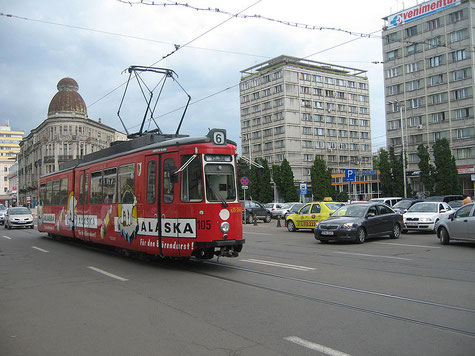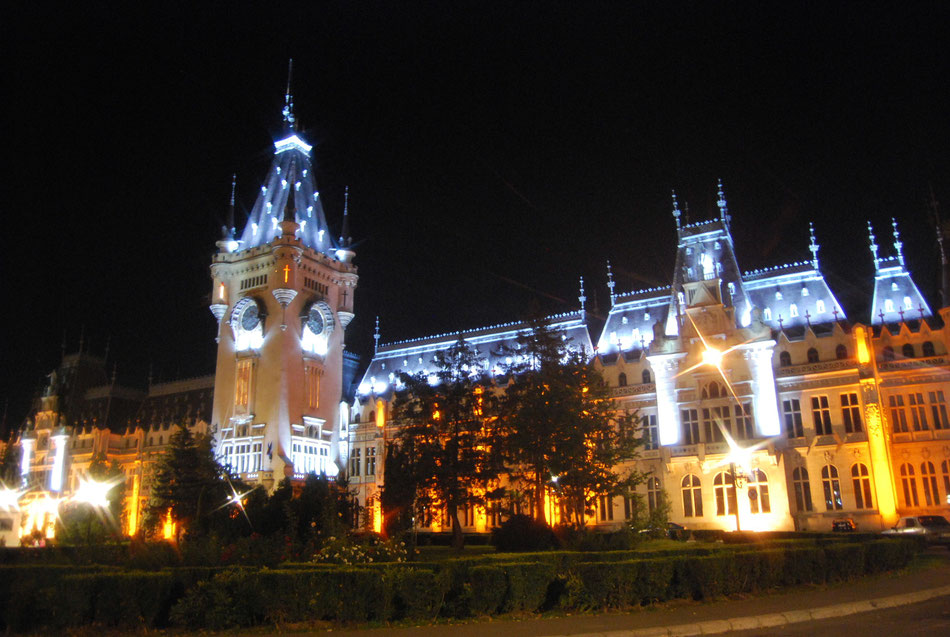Greetings from Romania!
My wife hails from here and it’s my last week in the country. It has been a whirlwind of visits with her family and friends, whom we haven’t seen in years. In between, I’ve had a chance to explore her hometown, see the people and the way they live, and experience a completely different culture than the one with which I’m familiar. The people are lovely. Everyone I’ve met is so open and kind. The country is beautiful. Between the mountains, the seaside, and the cities, there’s something for anyone traveling here. The food is phenomenal. I haven’t had a single meal I’ve been unhappy with since the one on my flight here. And, if you’re a traveler on a tight budget, come to Romania, where you can stretch your dollar farther than most places.
But with all these great attributes, the peoples’ struggles are quite apparent and it got me thinking how good we in the United States really have things in comparison. Daily life for the average Romanian is much harder.
Romania’s Problems
The poverty rate in the country is an incredible 25%. This is twice as high as in the United States. I know we have our problems, but it’s staggering to think that one out of four people here struggle with daily living. As bad as that number sounds, though, you have to witness it to actually feel what this means.
Much of their economic problems stem from World War II and the post-war years. During the war the country was invaded twice. First by the Nazis and then by the Soviets. Neither treated the people particularly well, and robbed it of what wealth it had. After the war, Romania became a Communist nation as part of Soviet Union’s sphere of influence, and was ruled by a fierce dictator, Nicolae Ceausescu.

He ruled with an iron fist, suppressing individualism and entrepreneurship. Everything you did had to be for the State. Don’t like it? Death or prison was your fate.
Industry was nationalized. Personal property reallocated. Speech against the state was forbidden. Personal liberty was lost. That said, economically it seemed to work for a while. The country was abundant in resources and was able to export their goods. So much so that the country was debt-free. However, the people doing the producing, save for a select few with connections to the state, had nothing left for themselves.
As Margaret Thatcher had forewarned, eventually you run out of other people’s money. She was right. Towards the late 1980s, things had declined so much that simple necessities like toilet paper, eggs, and fresh produce, had to be strictly rationed.
The breadlines we know of in America from the Great Depression, were seen daily outside grocery stores here. My wife remembers these days vividly, where a rumor would spread that another store had something like a new shipment of oranges, and the people in line were left with a tough choice: stay in the line they were already in or try the other store which may or may not have what you were after. This was the normal state in Communist Romania (Read this article to see what life under Communism is really like, even today). Finally, in December 1989, the citizens of Romania had had enough of their condition and revolted, killing its dictator and forming a new government .
Post-Revolution
Sadly, even after the revolution, things didn’t improve as much as the people had hoped. Inflation skyrocketed as the new government overprinted its currency to the point where their currency, the lei, was worth next to nothing. All the goods that they had seen on the Western television programs was still far from reach for the common person. They were in the stores now, but too expensive to buy. Besides that, the government was as corrupt as it ever was under Communism. As the old saying goes, “Meet the new boss, same as the old boss.” Gradually, as capitalism grew, things have gotten better, but it’s still far from perfect.
Since the last time I’ve been to Romania, there have been improvements and modernization, but even now, it sometimes feels like I’ve stepped out of a time machine set to 1995. Though you’ll see modern offices and homes, a lot of what you witness as you walk the streets are buildings who long ago lost their luster and others that were not kept up like they should have been. Others sit completely abandoned and beyond repair. Most people own vehicles, but using public transportation is used a great deal more than in the U.S. Electric trams and buses run full throughout the city. The picture above, of the horse and wagon, is a common sight just outside the city-limits.

One of the first things my daughter noticed when we arrived was all the dogs walking around. She asked my wife, “Don’t they have owners.” My wife explained, “No, honey, these are stray dogs. We have always had a real problem with this.” I’m not sure what the cause of this is, but it seems that it’s a persistent issue throughout the country that is beyond the means of the government to address.
Underemployment and high youth unemployment is another big problem the country faces. Though the country is highly educated, the jobs in many fields simply aren’t here. Some of the best minds in world reside in Romania, but they can’t find a better job than something in retail. One of my wife’s close friends from college related how her son, like many others his age, recently moved elsewhere out of frustration, for better economic opportunities. How can a nation grow and prosper in the long-term without its youth?
This same friend, talked about her husband’s attempt to start his own business and was denied his dream by the level taxes and fees he had to pay. If his story is typical, without a strong base of small businesses that provide employment opportunities, young people leaving the country will continue to grow. The level of bureaucracy is stultifying as well. There are so many hoops to jump through for something that would be quick and easy in the U.S., and another reason for why progress seems so slow.
Feeling Trapped
Frustration and hopelessness seem the be the state of people’s minds. They can’t find a way to ever get ahead. It’s common for people to get so far behind on their bills that they have to choose between paying their electric bill for the month or buy their food and medicine. It’s a battle many of us face in the U.S., but I would say it’s even more common here.
One afternoon, my wife and I sat down in front of the old movie theater she used to go when she was in her teens and twenties. She told me about one of her distinct memories there. She had gone to see her favorite actor, Leonardo DiCaprio, in the movie, “The Beach.” Afterword, she sat on the same bench we were sitting on that day together, and looked around. After seeing all the cool places this movie character had been to in his adventures in the movie, she thought to herself, “This is it for me. This is all I’m ever going to see and this is all I will ever be able to do. I’m trapped!” She was having an existential crisis in her mid-twenties. She was frustrated with her life and felt that she was stuck.
It wasn’t until a year or so later that she found out her friend got accepted into a university in America to get a master’s degree. This friend told her, that she should try to do the same. All it took was this suggestion and suddenly the trap she felt she was in had a way out. The spirit to rise above her surroundings always existed in her, but had laid dormant for so long she didn’t know it was there. This was her chance to do something with her life that she had, for so long been unable to do.
Appreciate What You’ve Got
I pray that other Romanians, who are having these same personal crises, will find their way out their mental trap. Not necessarily by leaving the country, but by staying and making Romania as great as it can and should be. Romanians are a strong and smart people. Given the chance, I know this will happen once they see how to make the dream a reality. I also pray that my own fellow Americans will start to look around and realize that we have it way better than we realize. Studies have been done on this, in fact. Our middle-class in the United States are actually among the top 1% world-wide and our bottom 10%, as bad as they may have it, with hard work and determination, still have a chance to move up. We’ve been blessed by our predecessors to have simply been born here. It’s time that we count our blessings, realize things aren’t as bad as we make them seem in our mind, and always push for a better future – both personally and societally.
Always find ways to improve and build upon the past, instead of living in the past. Do this and no matter what, you’ll succeed beyond what you ever thought you could.

